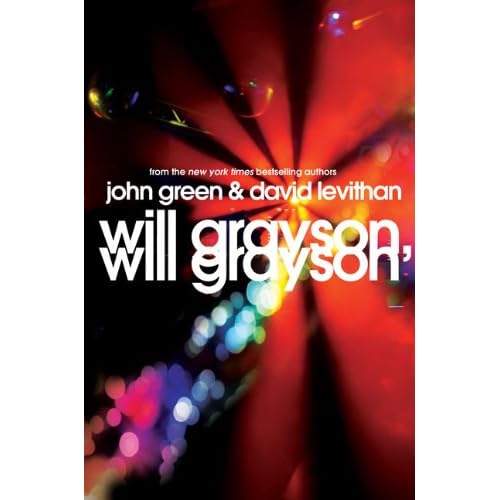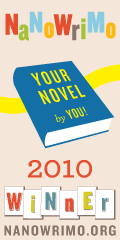
My read of last week was
Will Grayson, Will Grayson, by
John Green and
David Levithan. It’s an absolutely wonderful, touching and at times painfully well observed tale of friendship and young love; I laughed so hard it hurt, and bawled my eyes out at the end. It also features two gay characters, one, Tiny Cooper, who is openly gay (and fabulously so, if he does say so himself) right from the start, and one of the Will Graysons, who comes out in the course of the novel. And here in lies the conundrum. This is a book that I know so many of my students would enjoy. The writing styles and the way that the characters talk to each other is so perfectly tuned to the way that teenagers speak to each other that they’d laugh with recognition at it all the way through. But if I pass this book to a male student and tell him that he might enjoy it, chances are he’ll jump to the conclusion that I think he’s gay.
One of my first missions when I took over this job was to increase the number of LGBT books we stocked. There was one. A whole one. And it wasn’t keyworded ‘gay’ on the system, because the previous librarian feared that this would attract the wrong sort of attention. And the Stonewall guide to LBGT friendly employers was hidden in the office for the same reason. This counter-intuitive approach to shielding LGBT teens from negative attention was clearly not the way I wanted this library to be. We now stock many titles, both fiction and non-fiction, that are securely keyworded and clearly available. So far only one of them has been taken out.
On the face of it, this is a friendly, open school where we’ve had extensive work done in combating homosexual bullying. The word ‘gay’ when used as an insult or with negative connotations, is treated as seriously as a term of racial abuse. And yet there are very, very few openly gay students. In fact, I think I could only name one and he left last year.
Statistically, we can estimate 1% of students in this school are gay or lesbian, 0.5% are bi, and 3% are unsure*.
So what’s the best way to promote LGBT literature without making it seem exclusive, and without potentially upsetting students? The English department are planning to use an LGBT text as a class reader at some point in the near future, which will open up the subject, and I’m going to be putting together a display of relevant books that will be out for a couple of weeks just to make it clear that we do have books that would appeal to anyone who is curious.
I would really appreciate hearing how you or anyone else have handled this in your libraries, or if you’re a student here at RPS, what do you think would be a sensible and sensitive way of promoting these books?
*These statistics are based on adult respondents, so I’d expect our ‘unsure’ numbers to be higher.

